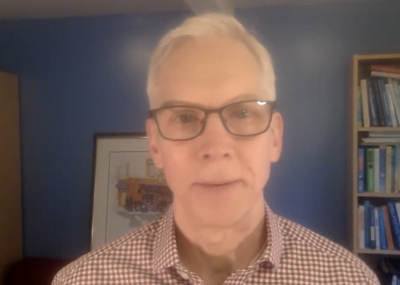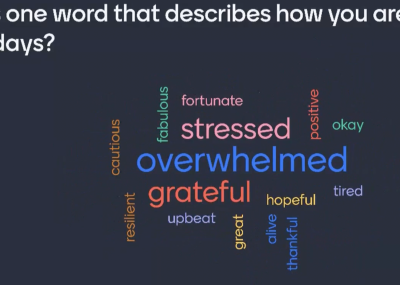
Takeaways from ASIS Toronto’s Surviving to Thriving with Scott Orth
By Canadian Security Staff
News Health Care mental healthOrth specializes in providing coping strategies to business professionals looking to ease their mental load.

Scott Orth
Mental health and overall well-being continue to sit at the forefront of workplace agendas in security organizations.
On Feb. 23, ASIS Toronto hosted Surviving to Thriving, a virtual seminar led by Scott Orth, founder of Mindful Wisdom Inc. Orth specializes in providing coping strategies to business professionals looking to ease their mental load and help move the mind away from a constant state of survival.
Earlier reports from security professionals have made references to higher rates of burnout, especially from those working in health-care settings. Leaders of companies in various sectors have also reported higher rates of emotional, physical and intellectual exhaustion as they have been among the people companies have relied on heavily throughout the pandemic.
Chelsey Herman, ASIS Toronto’s chair of its DE&I committee together with Sherri Ireland, vice-chair, ASIS Toronto, arranged for an engaging, hour-long presentation filled with mental health tools and resources. Below are some of the key takeaways from Orth’s seminar.
Cultivating a thriving mindset
In Orth’s words, the human mind defaults to autopilot, and autopilot is where the mind has learned many of the things that help the modern world operate. In the context of a global pandemic, this is the state of mind that is most relevant as it is concerned with the short-term, security and basic survival.
Alternatively, the intentional mind is best suited to the long-term. According to Orth, this is the state of mind that enables people to grow and ultimately thrive.

ASIS Toronto: Surviving to Thriving
“You can say, ‘I’ll stay on autopilot and stuck,’ or you can make a choice,” said Orth. “And you’ll see choice comes up, and it’s going to feel a little uncomfortable. This is the hard part. This is why we’re talking about this.”
The essentialist mindset
Orth explained that trying to do everything prevents people from thriving. With an essentialist mindset, people can make more thoughtful and meaningful decisions about where and how they devote their time and energy. Like moving from a survival frame of mind to an intentional one, this too can be uncomfortable as it forces people to trade some activities for others.
“When we say yes to something, we’re going to miss out,” Orth noted. “The other line I use, instead of FOMO (Fear of Missing Out) JOMO — the joy of missing out, the joy of not being everywhere,” said Orth, adding that people can derive more pleasure in life from giving themselves permission to just be present wherever they are.
The mind benefits from stillness
Midway through his presentation, Orth invited guests to meditate through a guided breathing exercise, noting that the experience of meditation is different for every person.
As Orth explained, the National Science Foundation says that the average person produces 12,000 to 60,000 thoughts per day, 70 to 80 per cent of which are negative while an even greater 90 per cent are repetitive thoughts on loop. Of these thoughts, NSF says that 85 per cent are worries that never materialize while people respond with resilience to the remaining 15 per cent that do become reality.
Orth explained that the human mind has a bias for negative thoughts as a result of the human evolutionary process. He provided the context that our ancestors needed to be more concerned with what animals could eat them than what they were going to eat as a means for survival.
With this in mind, the development of intentional positive thinking becomes all the more important as it enables formation of neural pathways that make such thoughts more accessible over time.
Conclusion
Orth took the final moments of his seminar to remind guests that taking the time for simple breathing exercises throughout their days can help the mind and ultimately the nervous system. He also invited guests to share what they would remember most from his seminar.
Print this page
Advertisement
- Ontario will lift mask mandates by end of March if COVID-19 keeps declining: Moore
- Woman attacked at B.C. university campus remembered as kind, helpful
Leave a Reply